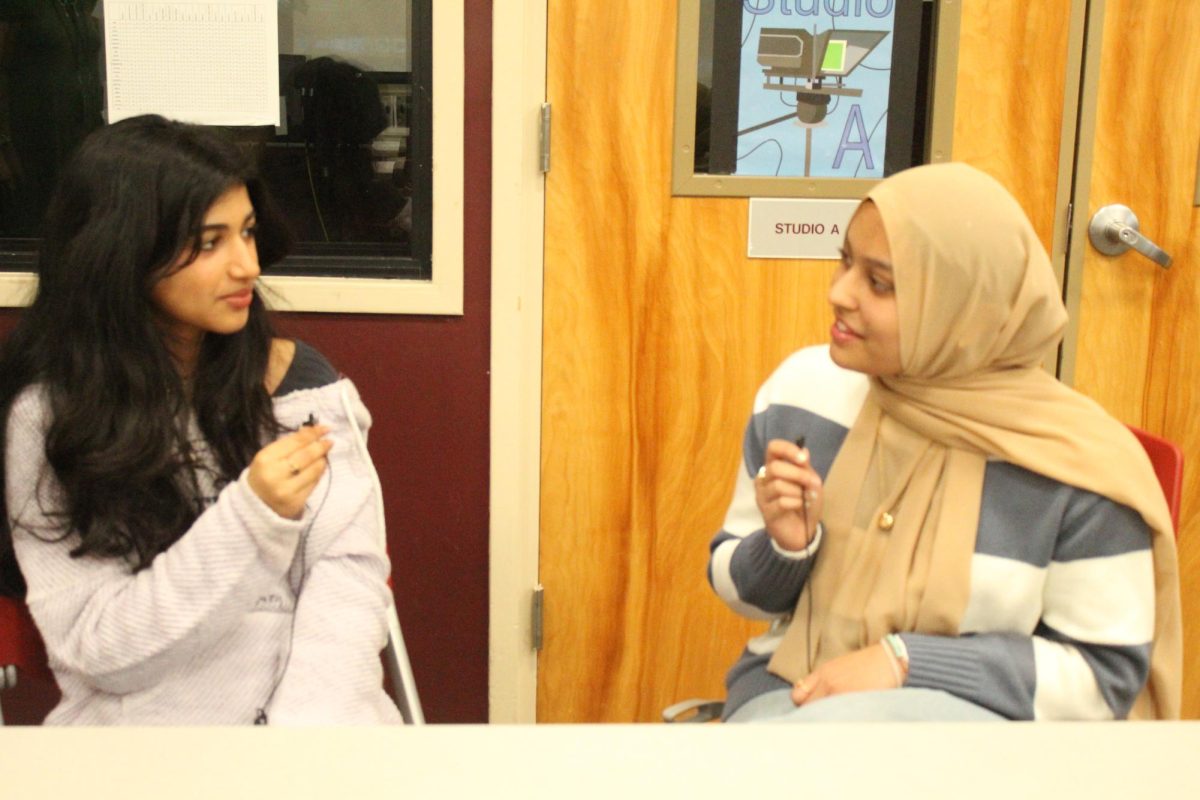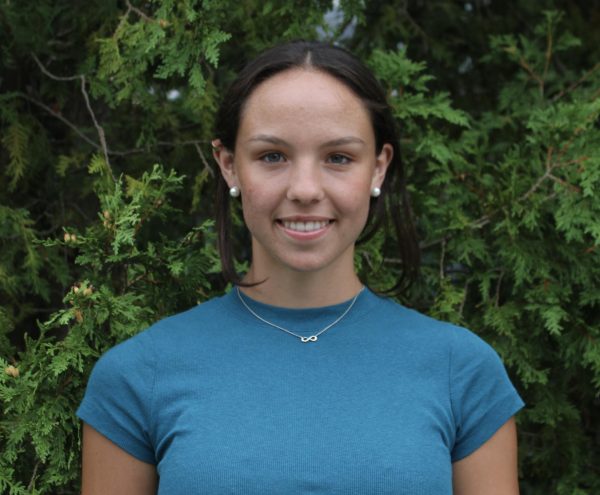By Hannah Simon, Co-Staff Development Director
Frustrated with how the media represents politicized conflicts such as the Israel-Hamas war, juniors Arohi Nepal and Zaina Sohail decided to take matters into their own hands. This September, the pair began “Rights and Realities,” a podcast airing on Spotify that they hope will allow for discussion about uncomfortable topics.
“We wanted a tangible way to express our opinions and our feelings on conflicts like these that pierce bubbles of ignorance,” Sohail said. “On top of that, as young people, we’re seeing so many current events and human rights being violated around the world, and we feel like our voices haven’t been heard.”
Nepal and Sohail noticed a lack of unbiased news coverage nationally, a trend they believe leads to misinformation and violence. One of their main goals is to only present correct information, educating students so that they are able to form their own opinions and ultimately foster healthy conversations about human rights conflicts.
“We needed to be careful in the way that we are giving this information, and making sure that whatever we do, we are not promoting any hostility towards any group in any way. Our goal is to be unbiased and to educate people on the topics that are going on currently,” Sohail said.
Because of this, Nepal and Sohail’s main challenge is in creating their script. In order to remain ethical, they make sure to use accurate, reputable sources, and when including information about the Conestoga community’s opinion, they pull from a diverse pool. For their first episode series on the Israel-Hamas war, they decided to conduct a survey about Conestoga and T/E community members’ perspectives on the conflict, collecting an array of honest thoughts.
“When we’re discussing these cases, we really want people to realize other people’s humanity and morality. In the world that we’re currently living in, everything is so subjective. Everything is characterized by, ‘Oh, this person did this,’” Sohail said. “We hope that people realize that other people are also human and they deserve dignity.”
Nepal and Sohail believe in the power of podcasts to not only dispel misinformation but also motivate students with different opinions to become more comfortable in having conversations. Nepal and Sohail believe that podcasts are one of the most effective forms of media in facilitating open-minded discussion.
“We can all write stuff, we can all make Instagram posts, but being able to speak about your opinions I think puts a lot of emotion and reality to your words,” Nepal said. “You can type something out, but I think really only through your voice you’re able to really feel the emotion that people in these conflicts are facing.”
Hannah Simon can be reached at [email protected].





















































































